Step 1 - Open Blender in the Cloud Template
Click on this link Blender in the Cloud Template to select the kasmweb/blender in the cloud template.Step 2 - [Optional] Check the Secure Cloud box
You can narrow your search results to only data center machines if you want insured security standards from our trusted datacenters.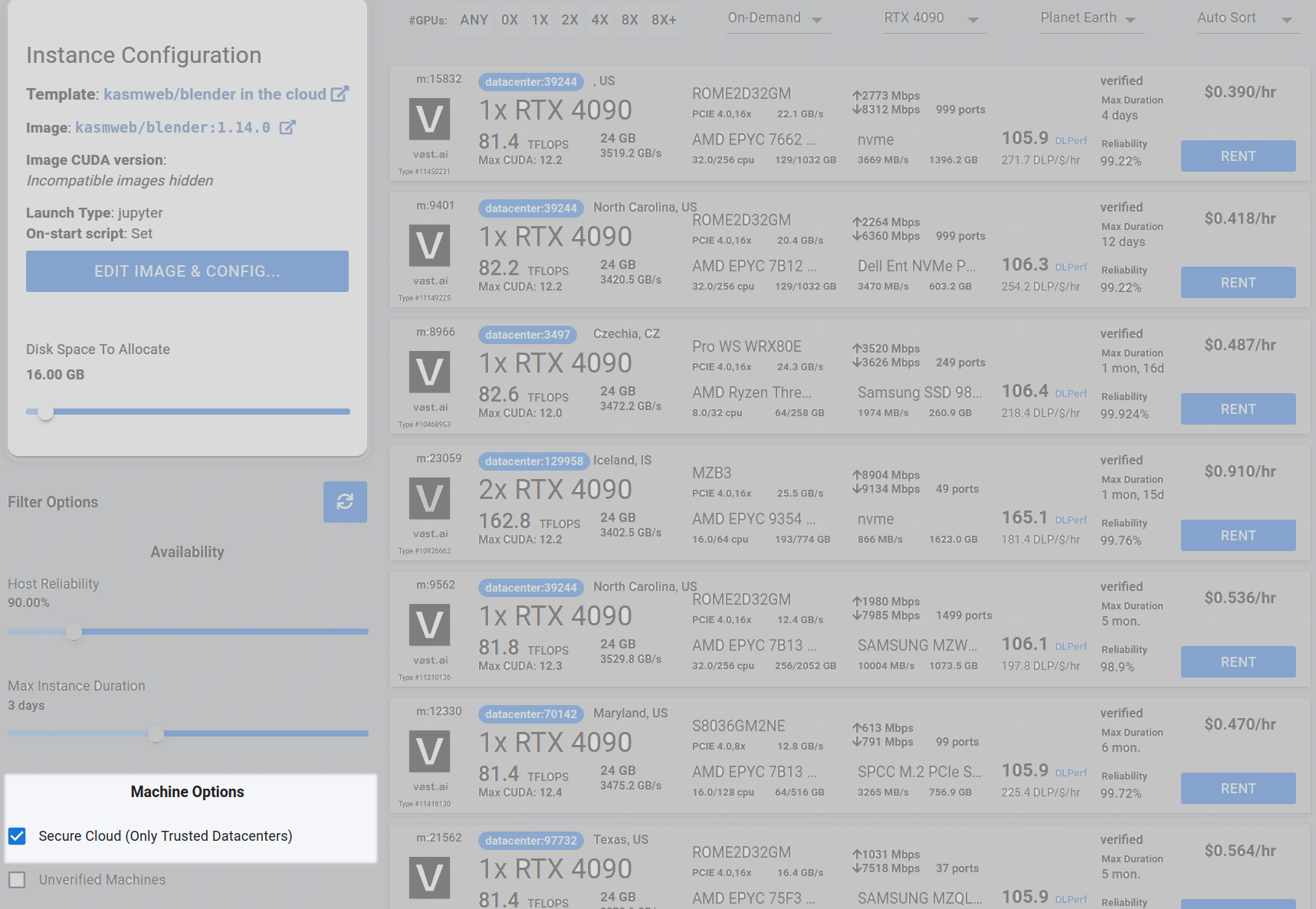
Step 3 - Filter for a GPU that you feel best suits your needs
If you have questions about which GPU to choose, there is some data around NVIDIA Geforce RTX 4090 giving the best render speed with Blender. You can find other GPUs that work well with Blender here Blender GPU Benchmarks. You can also find other options by searching on Google or asking ChatGPT. The version of Blender running within Vast while using the template linked above at the time of this writing is 3.6.2. Go to the GPUs filter and check the box for RTX 4090 or another GPU instance. For example,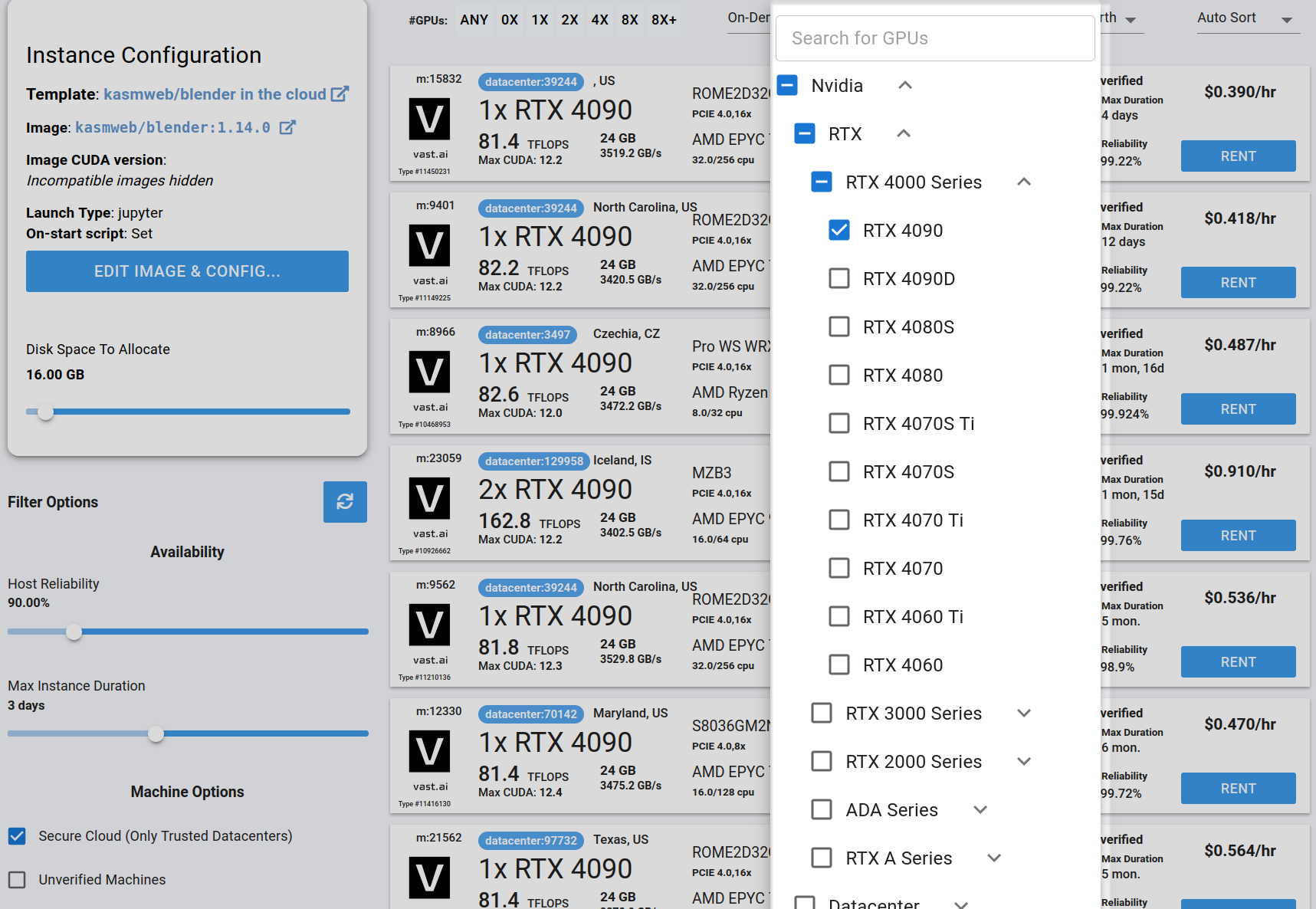
Step 4 - Choose a GPU by Clicking “RENT”
Choose a GPU that meets your budget, desired reliability %, and other constraints by clicking “RENT”. GPUs are sorted by a complex proprietary algorithm that aims to give users the best machines for their value by default. You can filter GPUs further per your requirements if desired.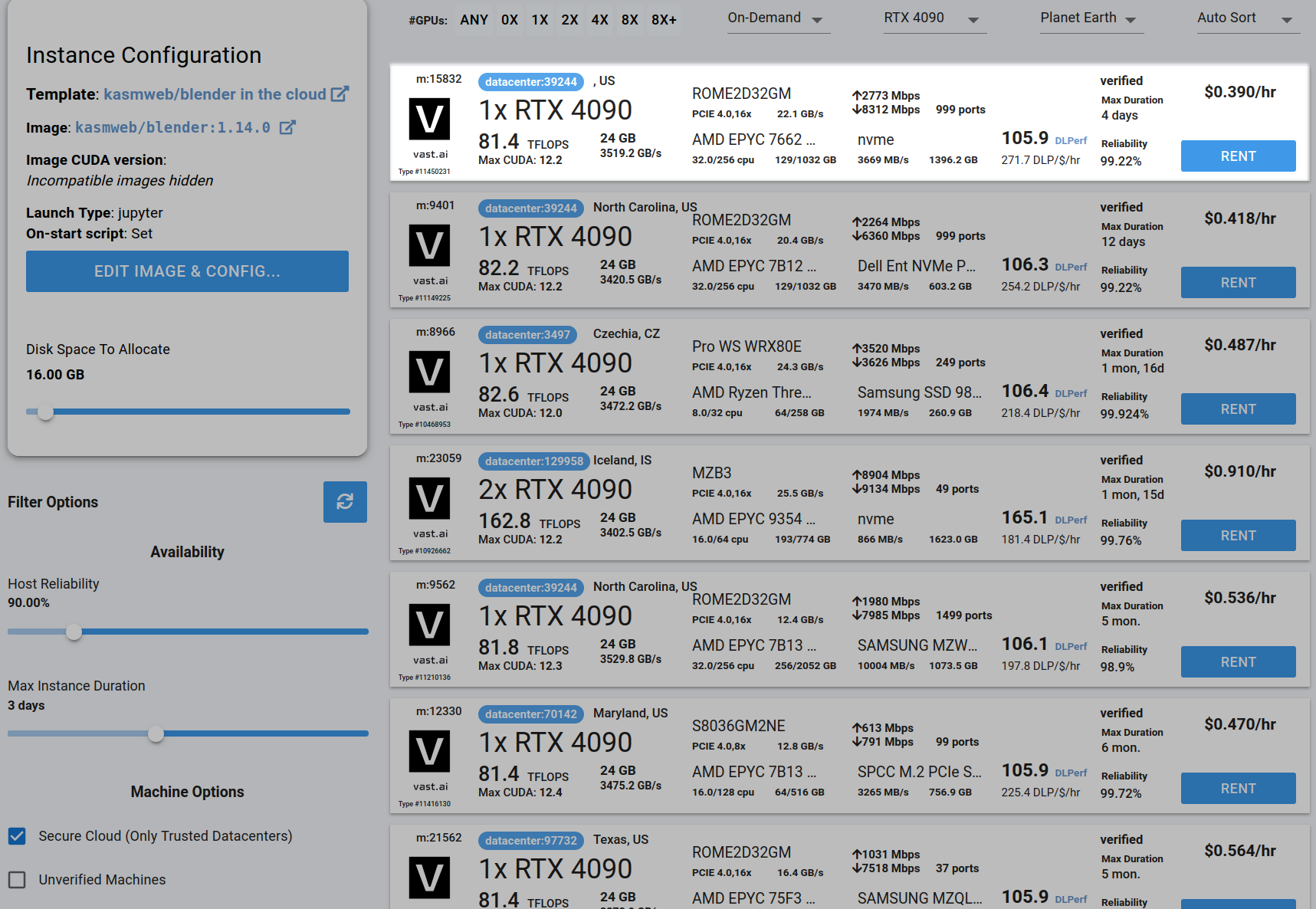
Step 5 - Use Jupyter Direct HTTPS Launch Mode
Follow the instructions related to adding a certificate to your browser if you need to when it asks you to “Setup Jupyter Direct HTTPS” and click “CONTINUE”. Here’s more information on the Jupyter direct HTTPS Launch Mode and Installing the TLS certificate: Jupyter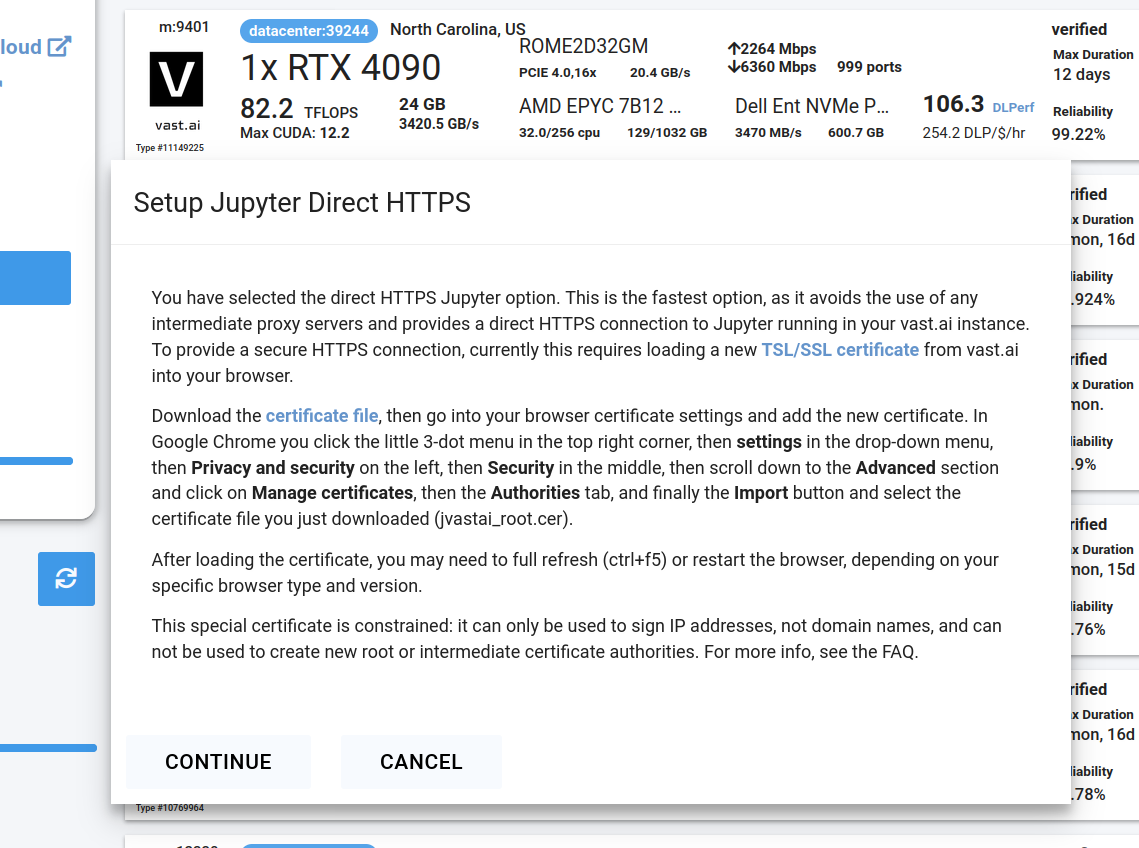
Step 6 - Open Blender
Go to the Instances tab to see your instance being created with it “Creating”. When the message on the blue button changes to “Open”, click on Open to open Blender.
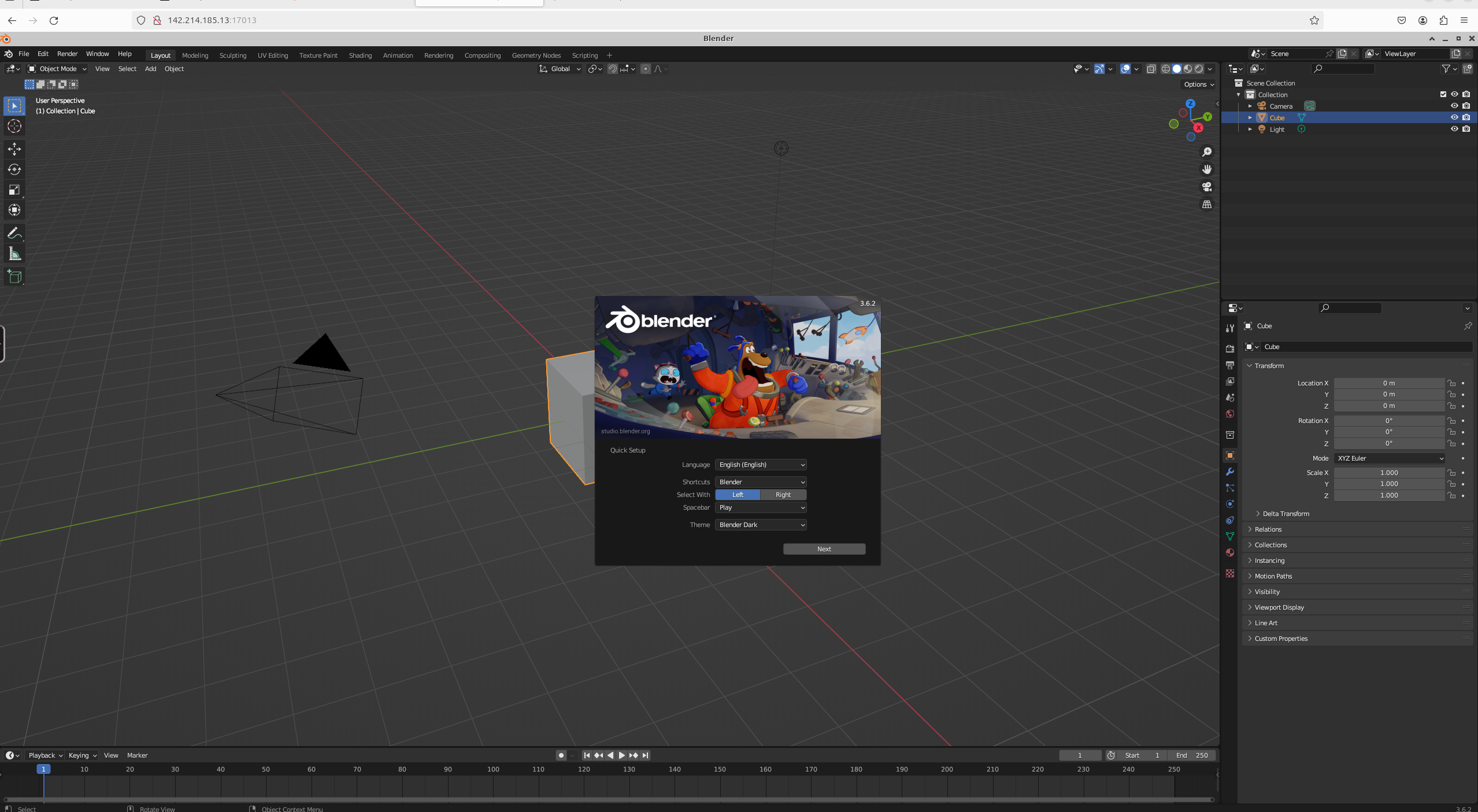
Step 7 - Upload .blend file(s) through Jupyter Notebook
Click the Jupyter Notebook button to open Jupyter Notebook.
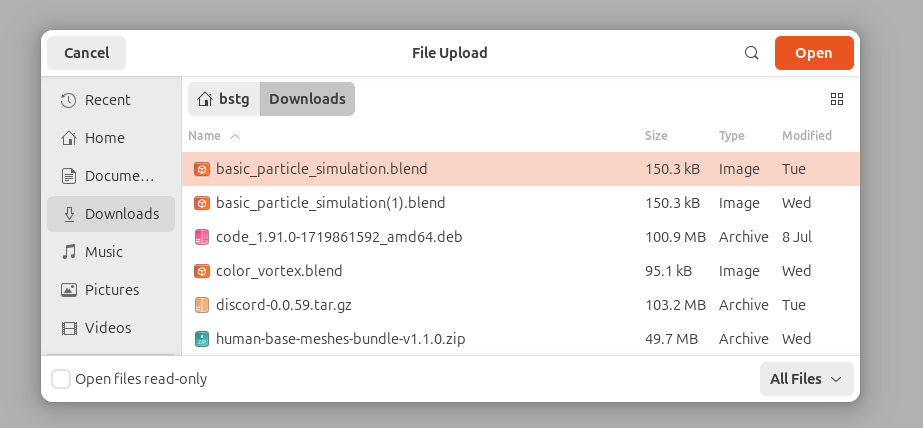

Step 8 - Open .blend file in Blender
Go back to the tab where Blender is running, click on File, click on Open, find your file, and open it. In this case, my basic_particle_simulation.blend is in the Desktop directory since that’s where I uploaded it in Jupyter Notebook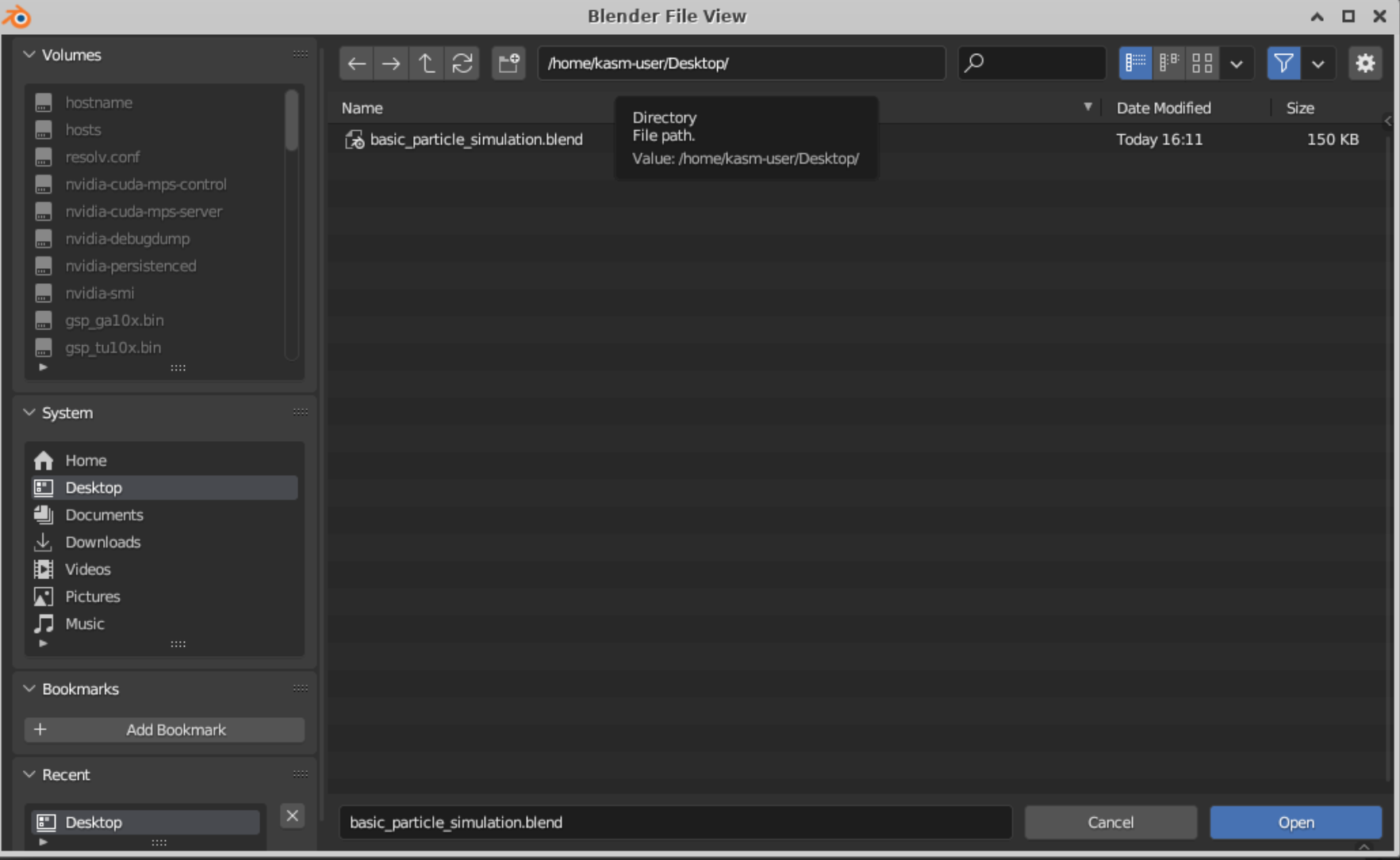
Step 9 - Work on Your .blend file in Blender!
- There you go! You should now able to see your .blend file in Blender in the Cloud using Vast.
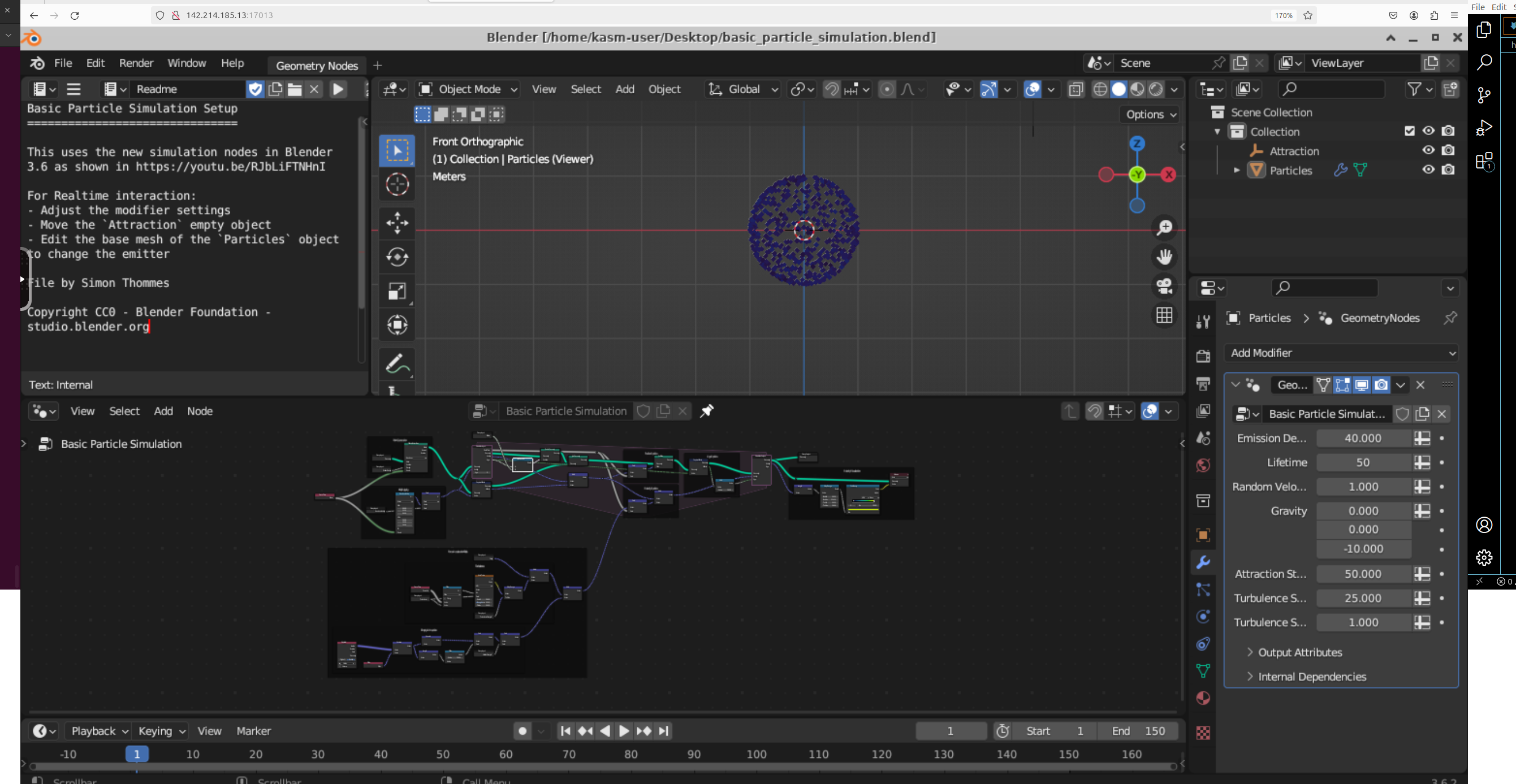
Step 10 - Download files as needed from Jupyter Notebook
- You can save files in Blender and download them by selecting the file(s) and clicking the Download button in Jupyter Notebook.
